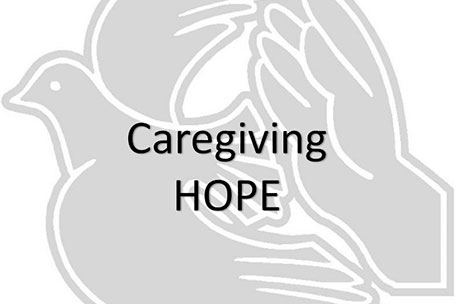Caregiving HOPE
About the project
Caregiving HOPE explores how obligations, preparedness and eagerness influences care and wellbeing. This research is supported by an Alzheimer’s Society Dementia Research Leaders fellowship awarded to Dr Sahdia Parveen in 2015.
There are currently 670,000 carers supporting a family member living with dementia. With an ageing population, more and more family members will be relied upon to support people living with dementia at home.
Health care professionals often assume those family members are willing and able to care for a person with dementia at home. However little is known about how willing and prepared carers of people with dementia feel and whether the next generation is prepared to support people living with dementia at home.

Aims and objectives of the Caregiving HOPE study
Current Carers
1. How are obligations to care, preparedness and willingness to care associated and how do they change over time?
2. How do changes in the above influence changes in carer outcomes (gains, burden, anxiety and depression)?
3. What enabled current carers to feel more prepared and what advice would they give future carers?
Future Carers
4. What are the attitudes and levels of knowledge with regards to dementia, sense of obligation, perceptions of preparedness and willingness to care in those in non carers?
5. Do attitudes towards dementia, belief in capabilities and preparedness influence willingness to care?
6. What would enable this generation to feel more prepared for the carer role?
Plan of work
Study 1: National study with carers
372 white British and South Asian carers will be invited to complete three questionnaires over 12 months in this cohort study.
10 South Asian and 10 White British carers will also be interviewed three times over 12 months to explore the values that shaped their carer experience, how prepared carers felt prior to becoming active carers and for successive steps in carer role and what would have helped them feel more prepared.
Carers will be given cameras to take pictures of what enabled them to feel prepared and confident. This will form the basis for a ‘Tips for Carers’ book which will focus on preparing for various aspects of the role.
Study 2: National study with non carers
170 people who are not providing care for a person living with dementia will also be invited to complete a one off questionnaire online.
To be included in this study, participants must be aged over 18 years and have no experience of supporting a person living with dementia.
In addition, six focus groups will be conducted with 48 participants to explore attitudes towards dementia care, willingness to care and what would facilitate feelings of preparedness.
Patient and public involvement
The project will be guided by a panel of carers, people living with dementia, carer support workers, Alzheimer’s Society Research Network Monitors and members of the public.
The panel will meet twice yearly over the three year period of the study.
The patient and public involvement in this study is being evaluated by Dr Alys Griffiths.
